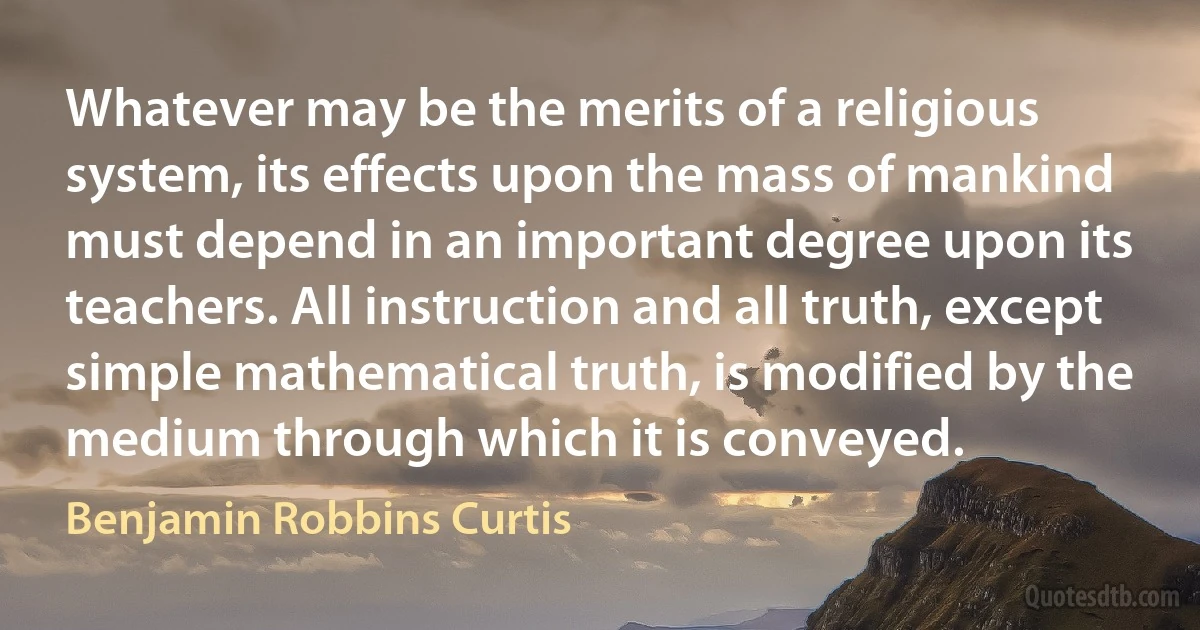Modified Quotes - page 4
When the facts are in, it may well turn out that the more extreme condemnations were in fact correct. But even if that turns out to be the case, it will in no way alter the conclusions we have reached on the central question addressed here: how the available facts were selected, modified, or sometimes invented to create a certain image offered to the general population. The answer to this question seems clear, and it is unaffected by whatever may be discovered about Cambodia in the future.

Noam Chomsky
In biology the Cartesian view of living organisms as machines, constructed from separate parts, still provides the dominant conceptual framework. Although Descartes' simple mechanistic biology could not be carried very far and had to be modified considerably during the subsequent three hundred years, the belief that all aspects of living organisms can be understood by reducing them to their smallest constituents, and by studying the mechanisms through which these interact, lies at the very basis of most contemporary biological thinking. This passage from a current textbook on modern biology is a clear expression of the reductionist credo: 'One of the acid tests of understanding an object is the ability to put it together from its component parts. Ultimately, molecular biologists will attempt to subject their understanding of cell structure and function to this sort of test by trying to synthesize a cell.

Fritjof Capra
I, ..............., do solemnly swear, in presence of Almighty God, that I will henceforth faithfully support, protect and defend the Constitution of the United States, and the union of the States thereunder; and that I will, in like manner, abide by and faithfully support all acts of Congress passed during the existing rebellion with reference to slaves, so long and so far as not repealed, modified or held void by Congress, or by decision of the Supreme Court; and that I will, in like manner, abide by and faithfully support all proclamations of the President made during the existing rebellion having reference to slaves, so long and so far as not modified or declared void by decision of the Supreme Court. So help me God.

Abraham Lincoln
But we won't have any genetically modified food, oooh no, we won't have any GM. Which is a shame, I think we've missed a trick there. We could develop wheat with the properties of Velcro... to catch whatever it is that's forming those crop circles! But then the spaceship would have to have the corresponding Velcro, so it's a bit of a long shot.

Bill Bailey
A poem is sort of an onion of contexts, and you can no more locate any of the important meanings exclusively in a part than you can locate a relation in one of its terms. The significance of a part may be greatly modified or even in extreme cases completely reversed by later and larger parts and by the whole.

Randall Jarrell
Yet, even did it be ever proved that Man once to be a fish, I to have no cause to abate the first part of mine argument; but to have the more need of the thought, that I gain power to accept the Fact; for I still then to have no occasion that I think Man to have been truly a Fish, or aught truly different from a Man; but only that he did be once Modified physically to his need, and to be still possessed of the Man-Spirit, though all lackt of development. Yet, truly, I to be less offend in my Reason, if that it be shown that Man did be ever somewise in his present shape, though mayhap so brutish as the Humpt Men; but yet I do be ready to consider all matters, and do build no Walls about my Reason. Yet, neither I to have an over-ready acceptance of aught, but to need that my Reason shall approve.

William Hope Hodgson
The "universe" is an hypothesis, like the atom, and must be allowed the freedom to have properties and to do things which would be contradictory and impossible for a finite material structure. What we observe are the stars and nebulae constituting "our neighbourhood." All that goes beyond that, in time or in space, or both, is pure extrapolation. The conclusions derived about the expanding universe depend on the assumed homogeneity and isotropy, i. e. on the hypothesis that the observed finite material density and expansion of our neighbourhood are not local phenomena, but properties of the "universe." It is not inconceivable that this hypothesis may at some future stage of the development of science have to be given up, or modified, or at least differently interpreted.

Willem de Sitter
Pāṇini had before him a list of irregularly formed words, which survives, in a somewhat modified form, as the Uṇādi Sūtra. There are also two appendixes to which Pāṇini refers: one is the Dhātupāṭha, "List of Verbal Roots," containing some 2000 roots, of which only about 800 have been found in Sanskrit literature, and from which about fifty Vedic verbs are omitted; the second is the Gaṇapāṭha, or "List of Word-Groups," to which certain rules apply. These gaṇas were metrically arranged in the Gaṇaratna-mahodadhi, composed by Vardhamāna in 1140 A. D.

Pāṇini



